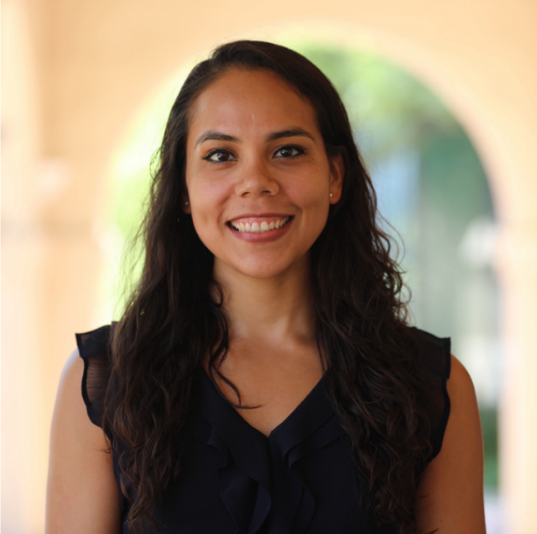Dr. Melissa Ramirez
Melissa Ramirez
California Institute of Technology
Abstract
Bridging Experimental and Computational Chemistry for the Development of Cycloaddition Cascades of Strained Alkynes and Oxadiazinones and Enantioselective NiCatayzed Spirocyclization of Lactones
Owing to tremendous technological advances, computational chemistry has evolved into a powerful tool for the development of reactions used to construct complex molecules. Computational models that allow chemists to predict the selectivity of a reaction are highly sought after because they enable rapid and efficient construction of intricate scaffolds. The first part of the presentation will detail computational studies onthe reaction of strained alkynes and arynes with oxadiazinones and the application of this reaction to the synthesis of non-symmetric polycyclic aromatic hydrocarbons. Several mechanistic aspects of the transformation were interrogated using density functional theory (DFT) calculations, including the differing reactivities of non-aromatic strained alkynes versus arynes. Experimental studies also demonstrated the rapid synthesis of polycyclic aromatic hydrocarbons, including tetracene and pentacene scaffolds, using this synthetic platform.
The second part of the presentation will center on the development of an asymmetric Ni-catalyzed intramolecular cyclization of lactones to generate spirocyclic scaffolds using a combination of experiments and computations. DFT calculations provide insight on the formation of a Ni-bound lactone enolate that reacts with a pendant aryl nitrile to generate a new spirocyclic quaternary center and β-imino lactone. This work is anticipated to expand the application of Ni-catalyzed nitrile insertion for quaternary center generation and to enable the exploration of new chemical space in drug discovery. Altogether, the establishment of computational models in these two areas of research facilitates 1) the incorporation of arynes and cyclic alkynes in polycyclic aromatic hydrocarbon synthesis and 2) the application of Ni catalysis in the synthesis of spirocyclic scaffolds.
Melissa Ramirez
Dr. Melissa Ramirez obtained her B.A. in chemistry at the University of Pennsylvania in 2016, having worked as an undergraduate researcher in the laboratory of Professor Gary Molander. In 2021, she earned her Ph.D. in organic chemistry at the University of California, Los Angeles. During her doctoral studies, she was trained as a computational and synthetic organic chemist under the guidance ofProfessors Ken Houk and Neil Garg. Her Ph.D. research centered on investigating the reactivity of strained cyclic intermediates and the mechanism of pericyclic reactions for complex molecule synthesis. Currently, Dr. Ramirez is an NIH K99/R00 MOSAIC Scholar, NSF MPS-Ascend Fellow, and Caltech Presidential Postdoctoral Scholar in the laboratory of Professor Brian Stoltz where her research focuses on enantioselective quaternary center formation using experiments and computations.
Hosted by Professor Courtney Roberts
